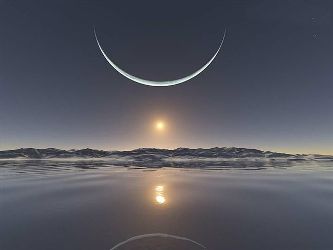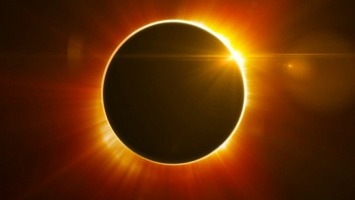What two things cannot be hidden for long?

If you guessed the sun and the moon, you are 100% correct.
Perhaps the two most dependable natural fixtures in the world, we always expect to see the moon when we lay our head down at night, and see the sun upon waking up in the morning. For many people around the world, time, as a concept, becomes twisted and distorted when an occurrence disrupts the function of either. Say, for example, a solar eclipse – where the moon shifts in between the earth and the sun, blocking the sun’s light from earth for a short amount of time. For the first time in nearly a hundred years, next Monday, August 21st, North America will experience a total solar eclipse.

With the nearing of this remarkable event, we did some research on solar eclipses and the legends that surround them. E.C. Krupp, director of the Griffith Observatory in Los Angeles, once said “‘If you do a worldwide survey of eclipse lore, the theme that constantly appears is it’s always a disruption of the established order‘”. Perceptions of what that disruption signifies varies from culture to culture. Some see the solar eclipse as an event to be feared, while others view it as a time for reflection.
Many cultures see the eclipse as a moment when a demon or an animal consumes the sun. The indigenous Pomo of Northern California imagined a great bear, ambling through the skies and eating the sun when it refused to leave his path. Bolivian and Korean legends say an evil king sent “fire dogs” to steal the sun but they could not hold it in their mouths for long. Similarly, the Vikings saw sky wolves chasing the sun. Once they caught it, an eclipse would happen. By Vietnam tradition, the sun is eaten by a frog during an eclipse.
Other myths describe the solar eclipse as a part of natural law. The Navajo’s regard the eclipse as balancing out cosmic orders. Many Navajos still observe ancient traditions by singing special songs, spending time with their family, and refraining from food, drink or sleep.
If you’re travelling in the United States and want to see whether or not you will be in a prime viewing spot for next Monday’s eclipse, check out this site! Boston will only experience about a 63% eclipse, but it will still be quite the sight. Experts believe that the moon will cover most of the sun at approximately 2:45pm. If you’re looking for more information on Monday’s solar eclipse in Massachusetts, follow this link!
